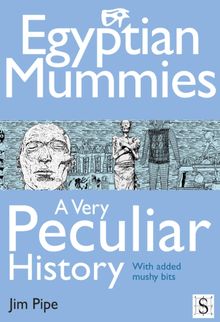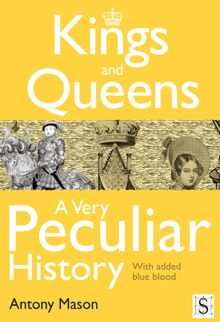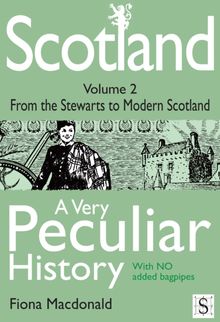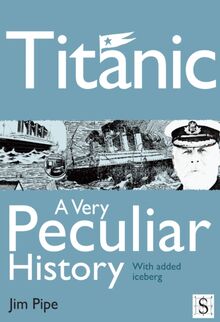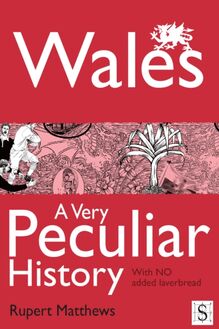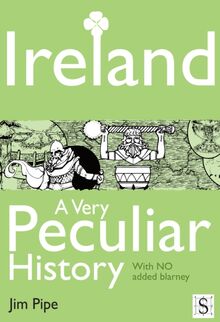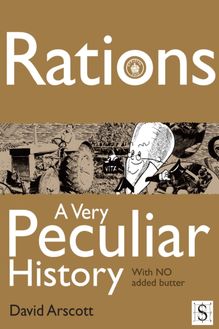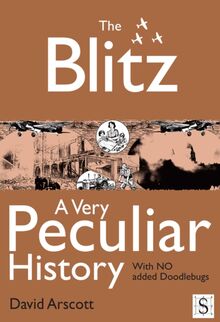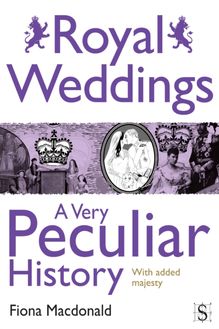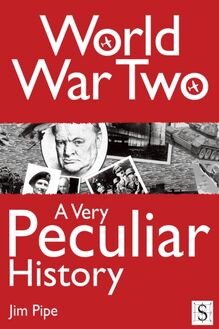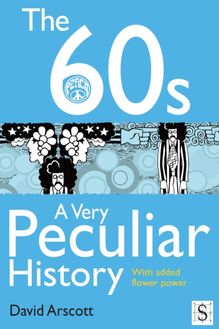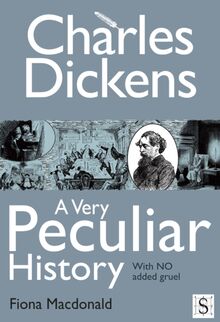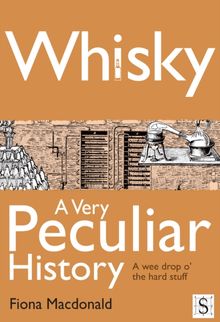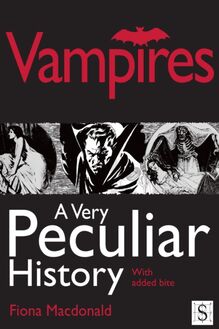Blitz, A Very Peculiar History , livre ebook
66
pages
English
Ebooks
2012
Vous pourrez modifier la taille du texte de cet ouvrage
Obtenez un accès à la bibliothèque pour le consulter en ligne En savoir plus
Découvre YouScribe en t'inscrivant gratuitement
Découvre YouScribe en t'inscrivant gratuitement
66
pages
English
Ebook
2012
Vous pourrez modifier la taille du texte de cet ouvrage
Obtenez un accès à la bibliothèque pour le consulter en ligne En savoir plus
Publié par
Date de parution
18 janvier 2012
Nombre de lectures
0
EAN13
9781908759405
Langue
English
Publié par
Date de parution
18 janvier 2012
Nombre de lectures
0
EAN13
9781908759405
Langue
English
Title Page
THE BLITZ, A VERY PECULIAR HISTORY
With NO added doodlebugs
Written by
David Arscott
Created and designed by David Salariya
Publisher Information
First published in Great Britain in MMX by Book House, an imprint of
The Salariya Book Company Ltd
25 Marlborough Place, Brighton BN1 1UB
www.salariya.com
www.book-house.co.uk
Digital edition converted and distributed in 2012 by
Andrews UK Limited
www.andrewsuk.com
Editor: Jamie Pitman
Assistant editor: Jodie Leyman
Illustrated by David Antram and Mark Bergin
Additional artwork: Carolyn Franklin
© The Salariya Book Company Ltd MMX
All rights reserved. No part of this publication may be reproduced, stored in or introduced into a retrieval system or transmitted in any form, or by any means (electronic, mechanical, photocopying, recording or otherwise) without the written permission of the publisher. Any person who does any unauthorised act in relation to this publication may be liable to criminal prosecution and civil claims for damages.
Every effort has been made to trace copyright holders. The Salariya Book Company apologises for any omissions and would be pleased, in such cases, to add an acknowledgement in future editions.
Visit our website at
www.book-house.co.uk
or go to
www.salariya.com
for free electronic versions of:
You Wouldn’t Want to be an Egyptian Mummy!
You Wouldn’t Want to be a Roman Gladiator!
You Wouldnt Want to Join Shackleton’s Polar Expedition!
You Wouldn’t Want to Sail on a 19th-Century Whaling Ship!
Dedication
In memory of my Grandma, with thanks
DA
Quotes
‘What a piece of dirty brutality in plan and in deed. As warfare it will not work. It will merely fan the flame of righteous hate in every British heart.’
Daily Express leader column
‘The thing I shall always remember above all the other things in my life is the monstrous loveliness of that one single view of London on a holiday night – London stabbed with great fires, shaken by explosions, its dark regions along the Thames sparkling with the pin points of white-hot bombs, all of it roofed over with a ceiling of pink that held bursting shells, balloons, flares and the grind of vicious engines.’
War correspondent Ernie Pyle
‘Now I can look the East End in the face.’
Queen Elizabeth (later the Queen Mother) after Buckingham Palace was damaged by a German bomb
INTRODUCTION: Why the bombs fell
Very late one night in the spring of 1944, a toddler unable to sleep was playing by the window of his north London home when his grandmother heard the unmistakable swish of a parachute wafting down through the pitch-black sky with a vicious landmine attached below.
She snatched the child up seconds before the window shattered and sprayed the room with splinters of glass. It was one small incident among thousands, but without her prompt action this book about the grim years of the Blitz would have been written by someone else.
Yes, you guessed it – that toddler was me! It was nothing personal, of course, but when I grew old enough to ask, I wondered why someone was intent on blowing innocent little me (and millons more like me) into even smaller pieces. And I wondered how people like my poor Grandma managed to cope with this kind of thing for year after gruelling year.
Well, the Blitz – from the German Blitzkrieg , or ‘lightning war’ – was every bit as terrible as you might imagine, but (as we shall see) there were lighter moments among the gloom, and the constantly bombarded citizens of London and other British cities found many ingenious methods of coping with it.
Death from the air
It’s said that when the first landmines were dropped, many people were killed because they didn’t know what they were. Policemen and air-raid wardens ran towards the parachutes, mistaking them for German pilots who had bailed out of their planes.
Chamberlain’s bit of paper
Did the war have to happen? In 1938 the British prime minister, Neville Chamberlain, very much hoped he could prevent it. He flew out to meet the German leader Adolf Hitler in Munich, and came back clutching not only his trademark umbrella, but an agreement which, he claimed, promised ‘peace for our time’.
The agreement said that:
•Germany, which wanted to expand beyond its borders, could take control of part of Czechoslovakia called the Sudetenland.
•But that was all it could have, and it mustn’t go any further.
Many people approved of this agreement (‘appeasement’, it was called), but wiser heads warned that Hitler was a ruthless man who would only abide by the first part of it – and they were absolutely right.
His army soon took all of Czechoslovakia and then threatened to sweep north into Poland. He wanted to dominate the whole world.
The Kindertransport
Hitler and his Nazi party hated Jews and wanted to exterminate them. In November 1938, 200 German synagogues were destroyed and thousands of Jewish homes and businesses were ransacked in a pogrom – an organised anti-Jewish riot – known as Kristallnacht. The name means ‘crystal night’ or ‘night of broken glass’, referring to all the shop windows that were broken by the rioters.
Since it was clear that much worse was to come, a rescue scheme known as Kindertransport (child transport) was organised. The idea was to bring Jewish children under the age of 17 to safety in Britain from Germany, Austria, Poland and Czechoslovakia.
Around 10,000 of them reached safety, the last train setting out only two days before the outbreak of war. Most of them would never see their parents or any members of their families again, as six million Jews were put to death in the extermination camps.
Some brave people in German-occupied countries tried to protect their Jewish neighbours. In occupied Holland, Anne Frank wrote her famous diary as she and her family hid in an upstairs room for two years before being betrayed. She died of typhus in the Bergen-Belsen concentration camp.
Here are two things Hitler is supposed to have said about the British prime minister after signing the agreement:
•‘Chamberlain seemed such a nice old gentleman that I thought I would give him my autograph.’
•‘If ever that silly old man comes interfering here again with his umbrella, I’ll kick him downstairs and jump on his stomach in front of the photographers.’
He jumped on Poland instead. Chamberlain had promised to support the Poles if Hitler attacked them, so Britain declared war on Germany on Sunday 3 September 1939.
The Phoney War
The bombing was still a long way off at this stage. In fact, the next seven months were referred to as ‘the Phoney War’, because there wasn’t a German in sight. That gave the British some time to prepare for the worst. Millions of gas masks were handed out, food was rationed and many thousands of sandbags were filled and stacked outside public buildings to protect them from bomb blast.
Meanwhile, Hitler’s troops had already overrun Denmark and Norway. Holland, Belgium and France were next in line – and then, inevitably, it would be Britain’s turn.
Enter Winnie
At this point Chamberlain furled his umbrella and resigned as prime minister, knowing that too many people had lost confidence in his ability to lead the country against Hitler.
The man who enthusiastically stepped into his shoes was Winston Churchill, who later said that he felt all his previous experiences in life had led him to this dramatic moment.
Churchill was a controversial figure who had made quite a few enemies in the past, yet nobody doubted his ability to organise Britain’s armed forces and to inspire the public with his stirring speeches.
Ten things to know about Winston Churchill
1.He was a descendant of another war hero, the first Duke of Marlborough, and was born (in 1874) at Blenheim Palace.
2.As a 10-year-old schoolboy in Sussex, he was stabbed in the chest by a lad whose ear he’d pulled in an argument. Fortunately, it was nothing serious, although the other boy was expelled. (Was this Churchill’s first victory?)
3.In his twenties he became a cavalry officer and served in India and Afghanistan before taking part in one of the last British cavalry charges – at the Battle of Omdurman in the Sudan.
4.During the Boer War he worked as a reporter in South Africa for the Morning Post newspaper and was captured after bravely helping wounded soldiers to escape on a train. He managed to get away, and reached safety after nine days on the run – becoming an instant celebrity in Britain.
5.He entered Parliament as a Conservative MP, but later switched to the Liberals – and then back to the Conservatives again. This made him quite a few enemies.
6.He was a tremendous public speaker but had trouble pronouncing the letter ‘s’, which always came out like ‘sh’.
7.He earned his living by writing dozens of books on history, war and literature. One of these was the massive, four-volume History of the English-Speaking Peoples – although he had other people to do a lot of the research for him. He won the Nobel Prize for Literature in 1953.
8.With his American wife Clemmie, he bought a house in Kent called Chartwell, where he relaxed by painting, keeping tropical fish and building brick walls at the rate of 60 bricks an hour. You can visit the house today. He once entered one of his landscape paintings at the prestigious Royal Academy under the false name of Winter – and had it accepted by the jury. (They didn’t have a se
